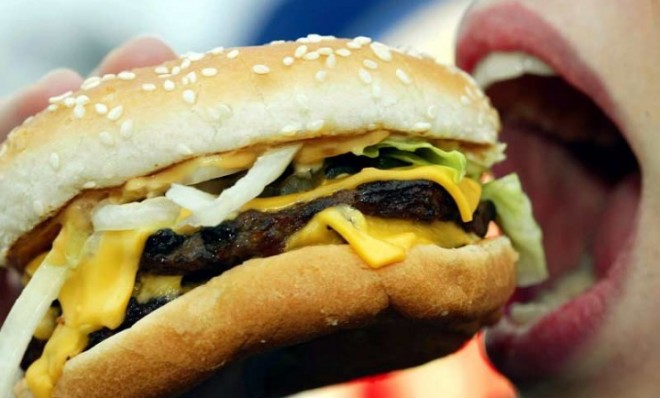What's so bad about horse burgers?
U.K. shoppers are up in arms after an investigation turned up horse DNA in their beef burgers. But in much of the world, people eat horse without a second thought

A free daily email with the biggest news stories of the day – and the best features from TheWeek.com
You are now subscribed
Your newsletter sign-up was successful
It turns out the secret ingredient in Tesco's Everyday Value Beef Burgers was horse meat, a revelation that has shocked consumers in the U.K. and sent the supermarket chain's share price tumbling. Prime Minister David Cameron called it "extremely disturbing news," a sentiment echoed by Tesco shoppers and the corporate heads of Iceland, Lidl, and Aldi — the other supermarkets implicated by the Food Safety Authority of Ireland's investigation. And while 37 percent of beef-burger samples tested positive for horse DNA, a full 85 percent featured traces of pig, prompting the question, "Why the outrage over horse meat and not its porcine counterpart?"
First, it's important to point out that squeamishness over eating horse is not universal. Horse meat is routinely consumed in France, Sweden, Japan, and a host of other countries. And despite being frowned upon in the U.K. and U.S., consuming horse is perfectly legal. The Irish investigation itself clearly stated that the discovered horse DNA does "not pose any food safety risk and consumers should not be worried." As for health concerns, horse meat is actually leaner than beef and is preferred by athletes in countries such as Kazakhstan because of its favorable protein-to-fat ratio.
So the aversion must be psychological, right? "As soon as you give an animal a name, how can you eat it?" asks animal psychologist Dr Roger Mugford at BBC.com. Tobin Harshaw at Bloomberg posits that "distaste for equine flesh seems to be an Anglo-Saxon trait," perhaps an emotional hangover from a time when horses were "simply too valuable for transportation and agriculture to be raised for slaughter."
The Week
Escape your echo chamber. Get the facts behind the news, plus analysis from multiple perspectives.

Sign up for The Week's Free Newsletters
From our morning news briefing to a weekly Good News Newsletter, get the best of The Week delivered directly to your inbox.
From our morning news briefing to a weekly Good News Newsletter, get the best of The Week delivered directly to your inbox.
The Telegraph's James Kirkup disagrees, pointing out that we rather callously allow horses to be pumped full of drugs, injured, and sometimes killed in horse racing. Instead of emotional attachment, he says the problem is a disconnect between us and our food:
Basically, we're squeamish about meat. I've lost count of the number of friends I've heard say that they can only bear to eat meat if they don't think that once upon a time it was alive and that it was born, raised and killed solely so they could eat it. [The Telegraph]
This is the same phenomenon that leads Americans to happily eat the ambiguous sponges known as Chicken McNuggets but recoil at the sight of blood on a raw chicken. According to the Daily Mail's Michael Hanlon "the issue of course is not the horse, per se, but the fact that increasingly we have no idea what goes into our food."
If you don't know where your meat is coming from, it's easy to see how you might be concerned that it's contaminated. Just like beef or chicken, horses raised in good conditions are usually safe to eat. In the United States, however, horses aren't slaughtered domestically, which means they aren't inspected by the USDA before being shipped off to slaughterhouses in Mexico and Canada. That has resulted in cases of Phenylbutazone (a common anti-inflammatory drug used for horses that can be cancerous to humans) being found in horse meat meant for Europe. It turns out that debating the ethics of eating horse might rile up the public, but it's the larger issues with our food system in general that has health experts really concerned.
A free daily email with the biggest news stories of the day – and the best features from TheWeek.com
Keith Wagstaff is a staff writer at TheWeek.com covering politics and current events. He has previously written for such publications as TIME, Details, VICE, and the Village Voice.
-
 6 exquisite homes with vast acreage
6 exquisite homes with vast acreageFeature Featuring an off-the-grid contemporary home in New Mexico and lakefront farmhouse in Massachusetts
-
 Film reviews: ‘Wuthering Heights,’ ‘Good Luck, Have Fun, Don’t Die,’ and ‘Sirat’
Film reviews: ‘Wuthering Heights,’ ‘Good Luck, Have Fun, Don’t Die,’ and ‘Sirat’Feature An inconvenient love torments a would-be couple, a gonzo time traveler seeks to save humanity from AI, and a father’s desperate search goes deeply sideways
-
 Political cartoons for February 16
Political cartoons for February 16Cartoons Monday’s political cartoons include President's Day, a valentine from the Epstein files, and more